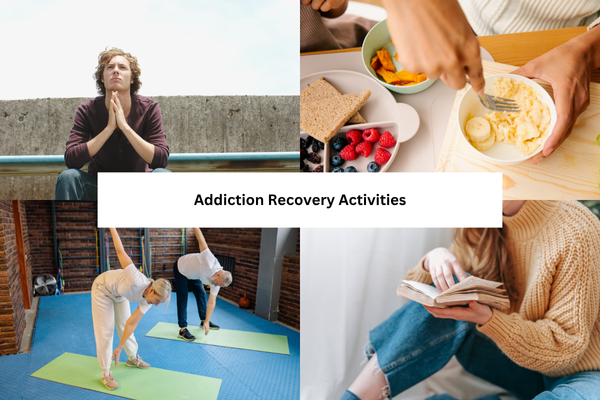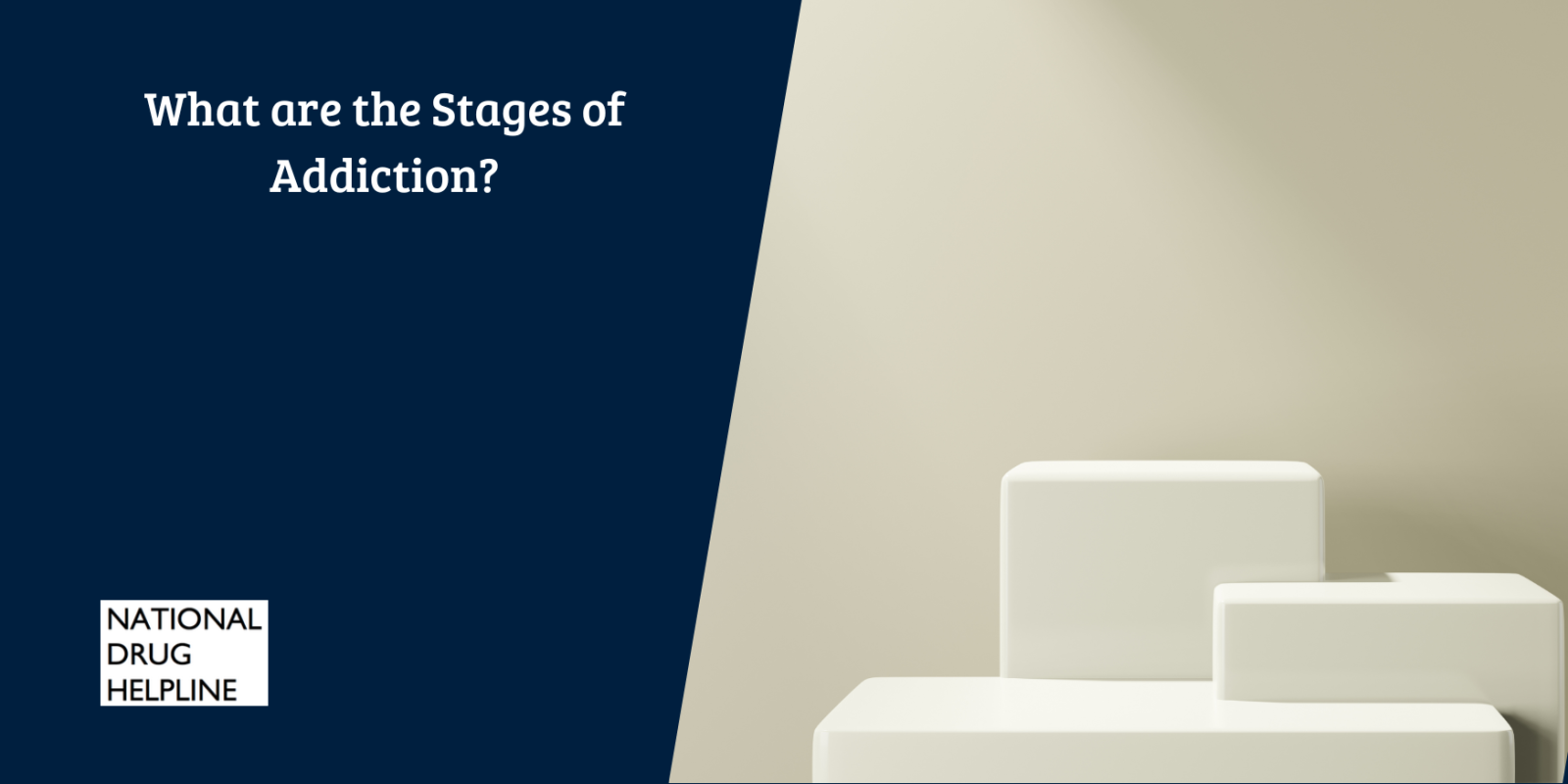Addiction is not something that occurs overnight. It develops gradually over time and progresses through a series of identifiable stages. By identifying these stages of addiction, early intervention can be started leading to a successful recovery. If you or a loved one is struggling with substance use, you can help break the addiction cycle by understanding how it works.
But first you need to know how many stages of addiction are there, and what each stage signifies. In this article, we will go through some key phases of addiction that will offer insights into how to begin recovering from each stage of addiction.
Understanding Addiction as a Progressive Process
Addiction is a progressive process that does not start with full dependency. Instead, it evolves over time and usage through different stages. These stages initially begin with experimentation and then escalate into full-blown addiction. When you can identify the exact point where someone is in this cycle, managing addiction can be more attainable.
There are several organizations that label the stages slightly differently. However, most agree that addiction progresses in at least five to seven stages.
Neurobiological Three‑Stage Model of Addiction
Researchers have conceptualized addiction to be a recurrent cycle containing three interlocking stages, with each stage characterized by specific neurobehavioral processes[1].
- Binge / Intoxication
This stage is marked by initial excessive usage of an addictive substance that produces a sense of reward or euphoria. This is driven by neurochemical signals that activate the mesolimbic dopamine pathway in the brain. Over time, this stimulation can lead to development of tolerance and reinforces behavior in response to cues.
- Withdrawal / Negative Affect
When the effects of substance use wears off, there can be an unpleasant emotional stage characterized by dysphoria, anxiety, and irritability. This shift from positive to negative reinforcement take place and the addicted person uses to avoid feeling these negative emotions.
Neurological adaptations engage stress systems like the corticotropin-releasing factor (CRF) and dysregulate the hypothalamic–pituitary–adrenal (HPA) axis. This causes disruption of the hormonal homeostasis in the body and worsens any pre-existing mental health disorders.
- Preoccupation / Anticipation (Craving)
This stage is characterized by intense craving and a loss of control. This leads to impairments in executive functioning by the prefrontal cortex, making it difficult to resist substance use. There is a heightened risk of relapse due to both internal and external triggers such as stress or craving.
Interventions can be tailored for each stage, for example by medications such as naltrexone to reduce bingeing, stress-management techniques to provide relief from withdrawal symptoms, and behavioral therapies to improve self-control and reduce the risk of relapse.
Addiction Recovery Stages

This model was theorized in 1983 by Prochaska JO and DiClemente CC. It outlines a motivational pathway that is followed by individuals when they suddenly change their behaviors, including overcoming addiction[2]:
- Precontemplation
- In this stage, there is no true intention to change the harmful behavior. Most people are unaware or may even be in denial that they have a problem.
- In this stage, there is no true intention to change the harmful behavior. Most people are unaware or may even be in denial that they have a problem.
- Contemplation
- This is when there is initial acknowledgement of the issue while also weighing the pros and cons of change. They may be ambivalent to the problematic behavior.
- This is when there is initial acknowledgement of the issue while also weighing the pros and cons of change. They may be ambivalent to the problematic behavior.
- Preparation
- A concrete plan may begin in this stage, which includes setting goals, seeking resources, and a mental commitment to change.
- A concrete plan may begin in this stage, which includes setting goals, seeking resources, and a mental commitment to change.
- Action
- Here, they begin to actively implement change, modify routines, and behaviors such as quitting the substance.
- Here, they begin to actively implement change, modify routines, and behaviors such as quitting the substance.
- Maintenance
- By this stage, the healthy change in behavior is sustained for at least 6 months and there is continued effort to prevent relapse.
- By this stage, the healthy change in behavior is sustained for at least 6 months and there is continued effort to prevent relapse.
- Termination
- This is the end target in which there is no temptation remaining and the behavioral change is fully integrated.
Not all people go through these stages in a single attempt. In fact, most people recycle through the earlier stages several times with periods of relapse in between. For each stage, there are intervention strategies to help the person recover.
- Precontemplation: Raise awareness through education and constructive feedback.
- Contemplation: Explore ambivalence and motivate the person.
- Preparation: Plan logistics and develop support to prepare for recovery.
- Action: Provide tools to assist with behavior modification.
- Maintenance: Focus on coping strategies and relapse prevention.
Why Recognizing the Stages of Addiction Matters
By identifying the stage of addiction, action can be taken early on before the condition worsens further. Early intervention can help prevent several years of suffering and damage[3].
Some important benefits of early recognition include:
- Shorter duration of usage can make withdrawal and detox process easier
- Lower risk of long-term physical and mental health effects
- There is stronger likelihood of sustained recovery
Final Thoughts
Addiction is a condition that progresses and evolves in stages, beginning from initial usage to dependency and crisis. By knowing the different stages of addiction, you can learn how to spot them and empower yourself or your loved one before it is too late. The earlier you seek help, the better and easier the recovery will be.
If you suspect that you or someone you are
If you suspect you or someone close to you is moving through these stages, don’t wait for a crisis. The earlier support is sought, the better the chances for recovery.
References
| ↑1 | Cummins-Beebee PN, Chvilicek MM, Rothenfluh A. The Stage-Based Model of Addiction-Using Drosophila to Investigate Alcohol and Psychostimulant Responses. Int J Mol Sci. 2023 Jun 30;24(13):10909. doi: 10.3390/ijms241310909. PMID: 37446084; PMCID: PMC10341944. |
|---|---|
| ↑2 | Madill A, Duara R, Goswami S, Graber R, Hugh-Jones S. Pathways to recovery model of youth substance misuse in Assam, India. Health Expect. 2023 Feb;26(1):318-328. doi: 10.1111/hex.13658. Epub 2022 Nov 9. PMID: 36349556; PMCID: PMC9854309. |
| ↑3 | Faberman, J. (2004). Addiction and Change: How Addictions Develop and Addicted People Recover. Psychiatric Services, 55(6), 726–726. |

